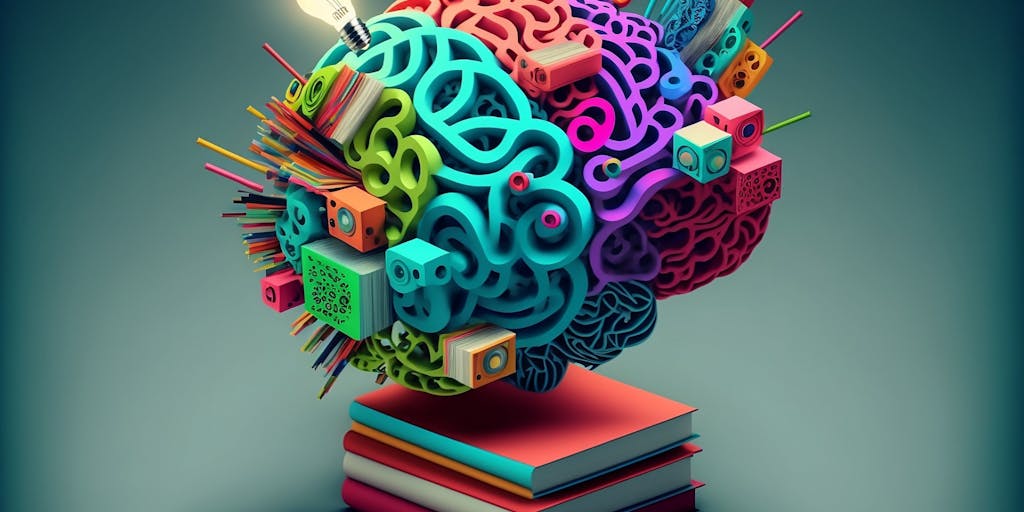When a high school student uses AI to design a community mural or a college freshman collaborates with peers across continents on a digital storytelling project, it’s clear the boundaries of learning are shifting. Classrooms are no longer just spaces for absorbing information; they’re becoming creative studios where students use technology to solve real-world problems.

Managing Director, Skills for the Future
Recently, EdSurge host Carl Hooker moderated a two-part webinar series, sponsored by Adobe, featuring expert panelists exploring the intersection of creativity, artificial intelligence and student success in K-12 and higher education. Speakers included Melissa Vito, vice provost for academic innovation at the University of Texas at San Antonio; Laura Slover, managing director of Skills for the Future, a joint initiative of ETS and the Carnegie Foundation; Justin Hodgson, associate professor at Indiana University Bloomington; Adeel Khan, founder and CEO of MagicSchool AI; and Brian Johnsrud, global head of education learning and advocacy at Adobe.
Inspired in part by Adobe’s recent research on how creativity and AI are shaping student outcomes and career readiness, the series highlighted how these leaders are seeing — and reimagining — the role of innovation in today’s learning environments.
EdSurge: What skills matter most for students’ futures, and how are institutions responding?
Slover: We want all students coming through the K-12 system to develop those essential, durable skills — skills that are critical not just for postsecondary and workplace success, but also for well-being and positive contributions to their communities.

Vice Provost for Academic Innovation, University of Texas at San Antonio
According to Carnegie and ETS research, the 11 most important durable skills are collaboration, communication, creativity, critical thinking, curiosity, digital and AI literacy, growth mindset, leadership, perseverance, self-regulation and civic engagement.
Vito: In higher education, microcredentials like project management are getting a lot of attention, and they’re important. But they don’t always include enduring skills — critical thinking, teamwork, communication, creativity. Employers consistently say those are the skills they want most.
Johnsrud: There’s always been awareness that the careers of tomorrow are out of sync with what we are teaching today. What’s different now — and what our research showed — is that AI has changed that misalignment. It has disrupted the value of certain skills. Some skills are replaceable, some are augmented. But what’s most interesting is the set of skills that are now more accessible for students to add to their toolkit — the kinds of things AI is surprisingly good at helping students develop.
How is AI shifting the role of the educator in today’s classrooms?

Global Head of Education Learning and Advocacy, Adobe
Hodgson: We still see some resistance to how AI is being factored into the conversation. But for the most part, faculty are beginning to understand that their role needs to shift — not just in terms of what they assess, but also in becoming AI-enabled mentors.
We’re moving from fear-based reactions to more thoughtful engagement. The initial response was that AI would lead to cheating. But now we’re seeing more strategic thinking about what AI enables.
How are educators using creativity and AI together in practice?
Vito: At UTSA, we jumped in early. We started with a few core values — one was to be curious and experiment. We wanted to create opportunities for faculty to just learn; we were all learning together. The velocity of change is very fast right now, and we need to realize that. Our faculty have been amazing.
Students early on described AI as a great anonymous tutor — especially valuable for first-generation students who used it to ask questions, refine thinking and learn.

Associate Professor, Indiana University Bloomington
Johnsrud: If you look at existing research on how often students actually get to practice creativity and develop creative thinking, I think it’s humbling.
Most creative industries are actually reporting more creativity — especially when you break it down into the components of creative thinking: understanding a problem in different ways, brainstorming multiple solutions, designing different approaches to solve a problem and exploring a variety of ways to communicate those solutions.
These are exactly the kinds of things AI is very good at helping us with.
Watch both on-demand webinars now:

Founder and CEO, MagicSchool AI
How can AI help educators personalize learning?
Khan: AI gives educators the ability to save time when creating materials — but more importantly, it allows them to deeply customize those materials based on what their students know, where they are academically and the context of their lives and local communities.
Learning becomes so much richer when educators truly know their students. And when they use AI tools to leverage that understanding, they can tailor instruction to better meet individual needs.
At the end of the day, the most important thing educators do is build relationships with their students. I see AI as an incredible accelerator of that relationship.
What does AI literacy look like in today’s classrooms?
At the end of the day, the most important thing educators do is build relationships with their students. I see AI as an incredible accelerator of that relationship.
Johnsrud: When it comes to AI literacy, I think about where we are now, much like the early days of media literacy when I taught K-12 library studies. The goal wasn’t just to pick a tool, but to teach students to be critical consumers. With AI, it’s the same: We need to teach students to “read the nutrition label” before they consume AI content. Who built the model? How was it designed? What does it do well, and where does it fall short? How do I decide whether to trust the results?
Khan: Most kids are using AI, whether they know it or not. Generative AI is only about two years old, but it’s already meaningfully integrated into their world, whether on their phones or in popular tools.
For many, their first AI interaction is with something like a chat AI friend. That’s actually really concerning. The first time they interact with generative AI, it’s something that claims to be their friend.
We believe strongly that students need to learn about generative AI in school from a trusted adult, so they can have critical conversations about how the model is trained, what generative AI is, how responses are generated, and what it should and shouldn’t be used for. AI is not your “friend.”
What challenges do schools face in assessing creativity and durable skills, and how are some trying to change that?
If AI can take your course and pass your course, then maybe AI isn’t the problem. If what you are doing can be done by a machine, then we need to rethink what we’re assessing. It’s not output specific — it’s process. How do I evaluate the learning that’s going on or students’ ability to work through the problem?
Slover: The problem is that schools are organized around courses like Algebra I, English 10 and biology. These are important courses, and many skills are embedded within them. But the way report cards work and assessments happen, students get a grade in math or English — not in collaboration, communication or critical thinking.
Those skills aren’t explicitly identified, measured or reported. The work we’re doing was intentionally created to tackle this problem — to change the goalposts and make it clear that it’s not just math and English that matter. There’s a whole suite of durable skills that matter, too.
Hodgson: If AI can take your course and pass your course, then maybe AI isn’t the problem. If what you are doing can be done by a machine, then we need to rethink what we’re assessing. It’s not output specific — it’s process. How do I evaluate the learning that’s going on or students’ ability to work through the problem?
We’ve been conditioned to a certain way of teaching — because of standardized outcomes, expectations, checklists and all the grades that come with them — and we’ve become a very content-heavy, delivery-focused system.
But ultimately, what defines a discipline is the ways we know, do and create within it. Being able to produce work across those methodologies, pedagogies and practices — that’s at the core.

